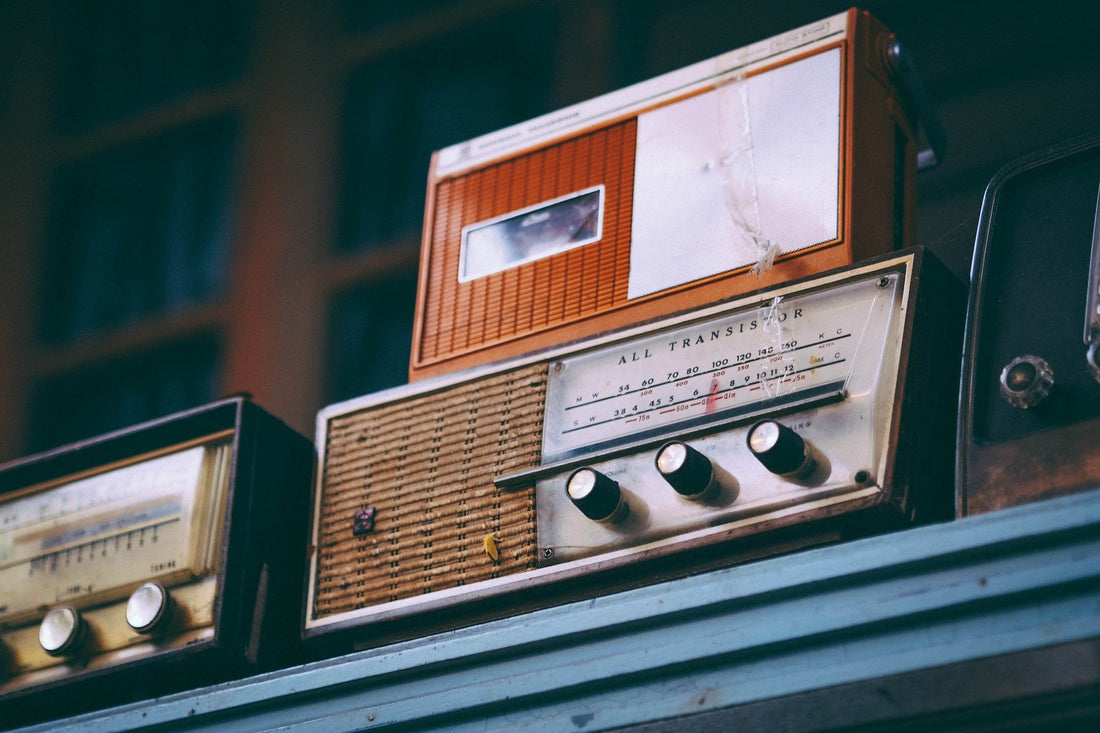As senior year approached, I started sending out audition tapes to stations much larger than any which would have me—but my visits to WFIL had set my sights way too high. A friend at my college station took one of my tapes to his hometown WYRE, in Annapolis, and landed me a part-time job. He had to go to summer school, too. We then made a deal – I’d drive him to and from home on weekends, and I could stay at his house (complete with backyard into a tributary of the Chesapeake, accessorized with a fast ski-boat).
There was lots of drinking on those weekends, followed by learning how to talk with a ripping hangover, as I had morning sign-on. As a daytimer, WYRE was regulated to only use its 250 watts during local daytime. It sat above a swamp, and the tower radials* were in the swamp, which helped get the signal out, almost to Baltimore, and to Washington in our dreams.
250 watts was the lowest power possible. But those wet radials helped extend the coverage, so it felt like a big timer, except we had a local and nautical format as “The Voice of the Bay.” Features like Tide Timetable and Scuttlebutt (PSAs) were peppered through each hour. And on weekends they’d turn the (then one span) Chesapeake Bay Bridge one way outbound as much traffic was headed to the Atlantic coast, then on Sunday at some time it’d be one way the other way inbound. Now there are twin bridges. But back then, we’d call the toll booth, “On the Line with me is Sgt. Foley on the Bay Bridge. Sergeant, how is traffic?” Ding ding. Ding ding: the sound of quarters being deposited – Sgt. F. had laid the phone down and forgot it.” I’d sit and think – “ is he gonna pick it up? How long should I wait?”
Ding ding.
We had a color blind “contract” engineer, a nomad who repaired or took care of many stations. He’d hold up a wire and ask what color it was, then crawl back into whatever he was fixing.
One afternoon the circuit breakers tripped in the transmitter (swamp electric – this happened regularly) and WE COULDN’T GET THE TRANSMITTER DOOR OPEN to reset them. The engineer was called. He arrived in an agonizing 45 minutes, and pointed to the old transmitter. “See that dent?” He asked, “That’s where Adam F****ed Eve.”
He then tapped a spot and the door swung open. Several of us had been yanking on the handle with all our might, so we stood dumfounded, then I rushed back to the studio to be ‘on the air.’ There couldn’t have been one listener left.

Especially on weekends, radio stations are lonely. We had the inner studio door propped open because the AC failed at 10AM in the summer, and the program director had thoughtfully poured a bottle of Aqua Velva aftershave into the overburdened AC unit to try to cover up the moldy smell. So I am alone, on the air, and could see when the outer door opened by a flash of outside light, but it was getting late and as I looked up into the doorway there was a girl’s face, suspended in space. Scared me to death! (She wore black and was in the dark studio doorway.) She was sexy, and we were going to have some fun, I thought, eager to test my newfound personality power on her, but had to finish my shift. Time slowed. Meanwhile she called her ex-boyfriend to say she wasn’t coming back, but they made up before my shift ended, and she left.
Legend has it that one day a snake fell through the dropped ceiling onto the microphone while some poor guy was sitting there waiting for a record to end. Later in my career I did confirm that stations with transmitters in swamps are snakeful places.
I lived maybe a quarter mile from the station, and when the morning show personality (also the Program Director) would go out to his car for a cigarette, the door would slam shut and lock him out; he’d run to a neighbor’s house and wake me up to come let him back in. Meanwhile, on the radio, listeners heard the needle having run out of music…schk shck shck shck…for minutes and minutes.

That RCA 77-DX mike would still hold up. Those headphones? Not so much.
“Dead Air” is when here’s nothing on, though the transmitter is still broadcasting. To be avoided at all costs. You could lose your whole audience before you were back.
I lived on Silopanna road – Annapolis spelled backwards.
Once, in the middle of a bad lightning storm, I called the boss and asked what to do. He said “Don’t touch anything metal.” EVERYTHING I had to touch was metal.
Well, in September I got married, and received a ten dollar a week raise. By October I was trying to climb the ladder, moving to a larger station in a larger market. Remember, Annapolis was small, even though our station could be heard in parts of Baltimore and maybe Washington, but to the industry, we were tiny.
Charlottesville was to be a step up.
*AM station towers are only half of how the signal propagates; there’s a grid of radial copper strips buried surrounding the tower. AM stations have a skywave and a groundwave. At night when you pick up a distant AM signal, you are hearing the skywave bounce off the ionosphere. [I never knew that. Learn something new every day. —Ed.]



